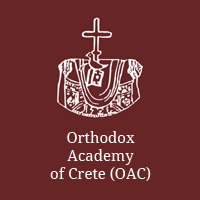Conference on Molecular and Population Biology of Mosquitoes and Other Disease Vectors at the OAC
Wednesday, July 29, 2015
International Conference on the molecular and population biology of mosquitoes and other disease vectors, the only one of its kind in the world, is being held 24-29 July at the OAC, where it has been established over the last 12 years. Pr
International Conference on the molecular and population biology of mosquitoes and other disease vectors, the only one of its kind in the world, is being held 24-29 July at the OAC, where it has been established over the last 12 years. This is an event of enormous scope, bringing together the scientific interest of hundreds of researchers, with participants from all continents. "It is important to support such conferences that promote us as a country and bring the world to see Greece and Crete," as stated by Mr. George Christofides, Professor at Imperial College London, on behalf of the conference organizers. He also added that, "It is very good for Crete and Kolymbari having the Orthodox Academy, and it is an honor for Greece to gather the best scientists in the world”.
The conference presented the latest data on vector-borne infectious diseases, such as malaria, dengue fever and West Nile virus. These diseases are caused by mosquito bites, and cases are increasing in recent years - which concern, unfortunately, and our country. The subjects of the conference also include the upcoming climate changes, some of which, based on forecasts and climate models strongly relate to areas close to Africa, such as Crete. Because of climate change, and human factors (population movements, etc.), there is a serious risk that these diseases can become a threat to public health and the tourist economy in Greece, particularly in times when the economic crisis is affecting measures of prevention, underlines Mr. Christofides.
The potential of Greece and Crete in particular in the research on sanitary important insects and vector-borne diseases has been demonstrated for decades now by renowned Greek scientists, such as Emeritus Professors of the University of Crete Fotis Kafatos and Christos Louis. Crete should exploit the established Conference, and the tradition it has created in this research field, said Mr. John Vontas, researcher at the Institute of Molecular Biology and Biotechnology (IMBB) of the Foundation for Research and Technology (FORTH) and Professor at the Agricultural University of Athens. The European Union (and much less the Greek State, at this stage at least) significantly aids the relevant research of FORTH-IMBB, sponsoring major research programs in which Greek teams participate. This research should however be strengthened and exploited to create teams of experts to meet the research needs of a larger geographic area in the Eastern Mediterranean, in the subject of sanitary important insects and vector-borne diseases. These groups can contribute to the research for the prevention and treatment of diseases, as well as to curb the wave of young Greeks leaving the country and particularly Cretan scientists from the University of Crete and FORTH, notes Mr. Vontas.
